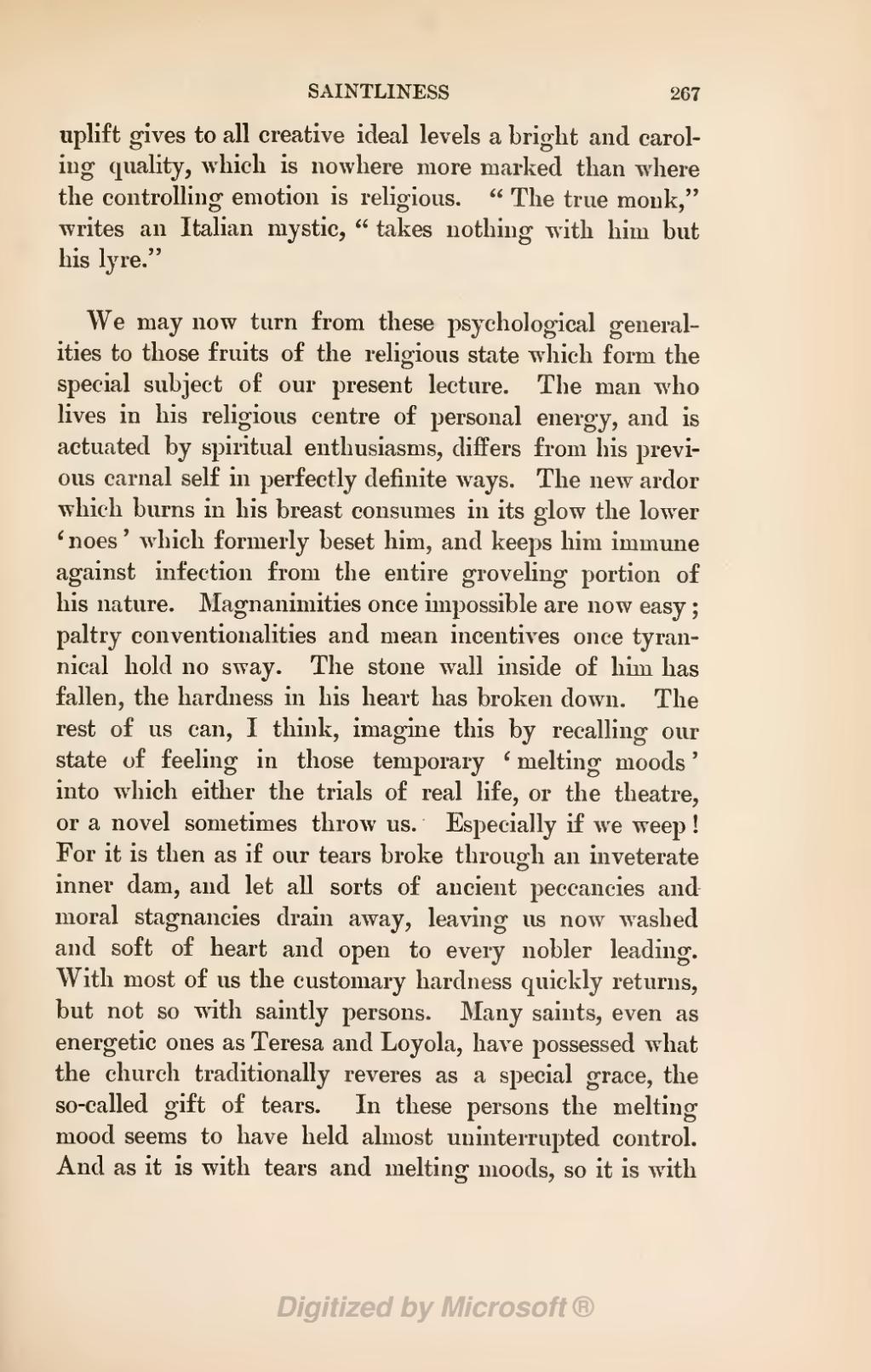uplift gives to all creative ideal levels a bright and caroling quality, which is nowhere more marked than where the controlling emotion is religious. "The true monk," writes an Italian mystic, "takes nothing with him but his lyre."
We may now turn from these psychological generalities to those fruits of the religious state which form the special subject of our present lecture. The man who lives in his religious centre of personal energy, and is actuated by spiritual enthusiasms, differs from his previous carnal self in perfectly definite ways. The new ardor which burns in his breast consumes in its glow the lower 'noes' which formerly beset him, and keeps him immune against infection from the entire groveling portion of his nature. Magnanimities once impossible are now easy; paltry conventionalities and mean incentives once tyrannical hold no sway. The stone wall inside of him has fallen, the hardness in his heart has broken down. The rest of us can, I think, imagine this by recalling our state of feeling in those temporary 'melting moods' into which either the trials of real life, or the theatre, or a novel sometimes throw us. Especially if we weep! For it is then as if our tears broke through an inveterate inner dam, and let all sorts of ancient peccancies and moral stagnancies drain away, leaving us now washed and soft of heart and open to every nobler leading. With most of us the customary hardness quickly returns, but not so with saintly persons. Many saints, even as energetic ones as Teresa and Loyola, have possessed what the church traditionally reveres as a special grace, the so-called gift of tears. In these persons the melting mood seems to have held almost uninterrupted control. And as it is with tears and melting moods, so it is with
